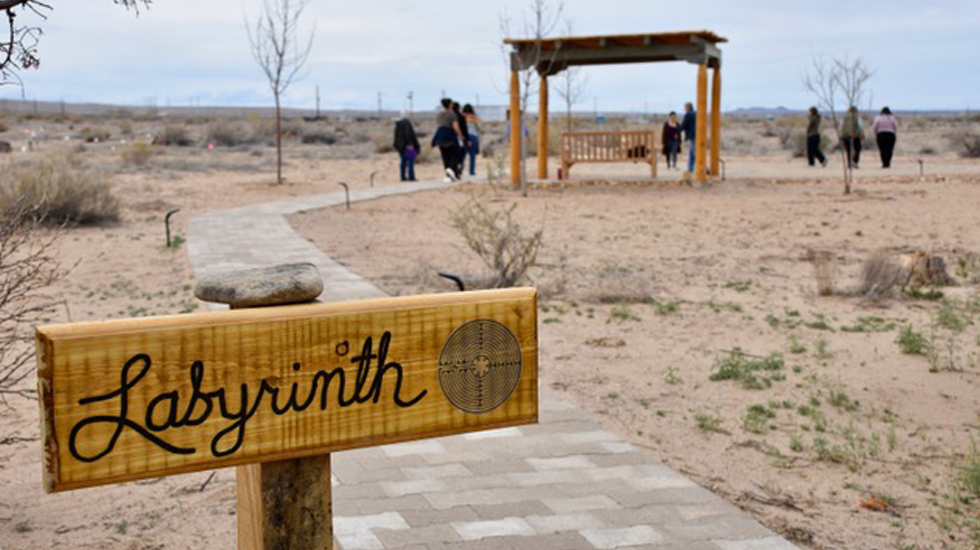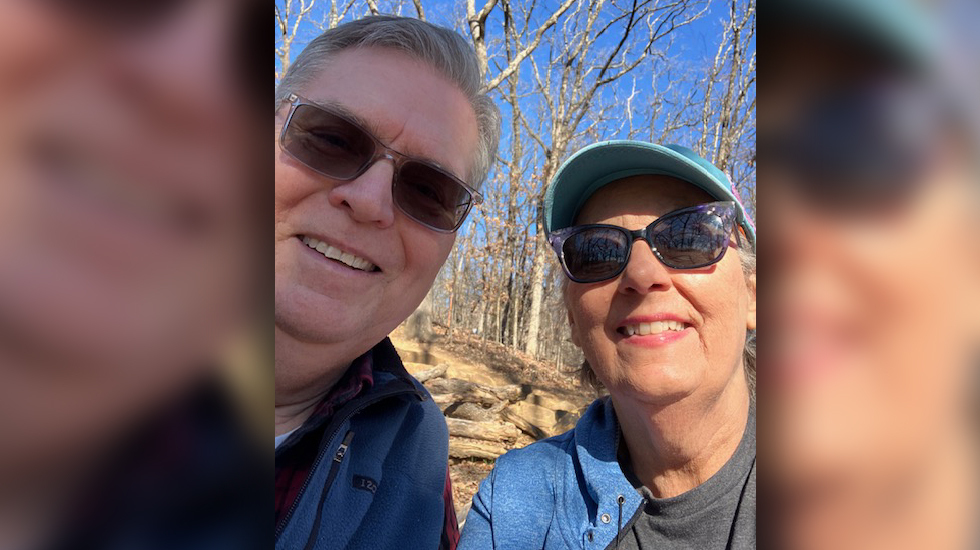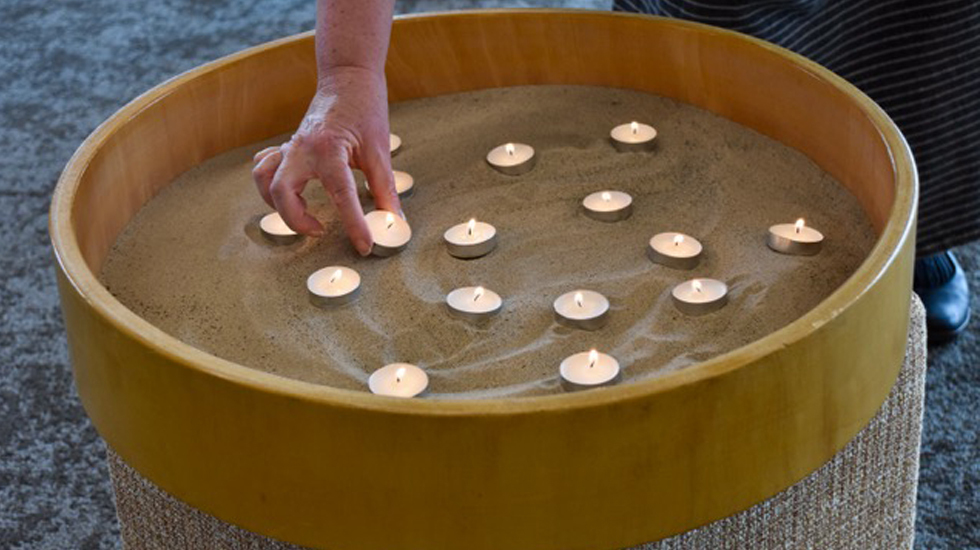


As a nursing professional with a Master’s degree in nursing education, Janet is familiar with how to “read, research, and look at” medical information. But despite all her experience and knowledge, Janet received a life-changing diagnosis of Stage 4 metastatic breast cancer in December 2022.
She was initially shocked—and angry—about her diagnosis. While undergoing treatment, Janet discovered support and community at an NBCF Metastatic Breast Cancer Retreat in Albuquerque, NM.

A year before Janet’s diagnosis, her annual mammogram revealed a suspicious area in her breast and a biopsy was performed. At the time, Janet was told that she had a benign papilloma, a non-cancerous tumor that grows inside the breast’s milk ducts. She was told, “You’re fine, just come back in a year for your mammogram.”
But 6 months later, Janet felt a lump and immediately thought, “What is this? They told me I was fine.” After another biopsy, Janet was diagnosed with breast cancer. Janet was understandably angry at the beginning, feeling like she received incorrect information from the first doctor.
After a PET scan, doctors discovered a small cancerous lesion in the right frontal cortex of Janet’s brain, leading to her diagnosis of metastatic breast cancer. In metastatic breast cancer, the cancer spreads from out of the breast and surrounding tissue and into other organs or areas of the body through the blood or lymphatic system. In Janet’s case, her breast cancer had spread to her brain.
Metastatic breast cancer (MBC) is considered Stage 4 cancer, for which there is no cure. In most cases, women diagnosed with MBC will live with cancer for the rest of their lives. With advancements in treatment, many women are living longer and longer by treating the disease as a chronic illness.
Janet learned about a National Breast Cancer Foundation Metastatic Breast Cancer Retreat to be held in Albuquerque, NM, and knew she wanted to attend. These retreats, funded by NBCF and hosted through partner facilities, recognize that patients with metastatic breast cancer face a unique set of emotions and challenges. The weekend retreats are designed to provide hope, education, and inspiration to MBC patients and their caregivers.
Metastatic Breast Cancer Retreat sessions include oncology consultations, letter-writing to family members for future milestones, yoga and relaxation, and emotional support for patients and their caregivers.

“When I went to that retreat in Albuquerque, it just blew me away,” Janet said. “It was like a party, going to summer camp. We’re all in the same boat, and we can share and support each other. It’s good to have people to talk to. It makes you realize how grateful you are.”
Janet shared that she appreciated the holistic approach of the retreat, including hearing other women’s stories, an empowering candle-lighting ceremony, walking through a meditative labyrinth, and good food. She is already planning to attend another retreat that offers additional sessions for her family.
As a patient herself, Janet has advice for others facing metastatic breast cancer. To protect your physical, mental, and emotional well-being, Janet suggests:
“Your body knows what it needs. Don’t ever give up.” Janet encourages women to listen to their care team but also to advocate for themselves if something isn’t working. It’s important that MBC patients be empowered to make their preferences known and their wishes respected.
Whether it’s an NBCF Breast Cancer Support Group, a religious or spiritual organization, or “whatever kind of system works for you,” support groups can help you “stay positive.” She also encourages spouses, partners, and caregivers to find a support group that encourages them and cares for their needs, too. NBCF offers a free Cancer Caregiver Guide to inform and uplift caregivers.
Janet says that she always used to say, “Yes, I’ll do it” to most requests that came her way. But these days, she’s more likely to decline. Janet recommends learning to be selective with your time and what you say “yes” to in order to take good care of yourself and maintain your peace.
“Drink a lot of water, rest when you need to, and ask for help when you need help.” Taking good care of your physical health is paramount for MBC patients. NBCF offers a free eBook, Nutrition Care for Breast Cancer Patients, as well as other nutrition and lifestyle guides, to help patients keep track of their nutrition and manage some side effects of treatment through their diet.
It is also important for MBC patients to look after their mental and emotional wellness. For this, Janet recommends prayer, meditation, and exercise. Additionally, NBCF’s free resource, 10 Prompts to Mindfulness, offers patients a structured way to express their feelings and reconnect with gratitude and positivity.
Even with her nursing background, Janet said she was “hungry for information” and would spend hours searching online. But she eventually made herself stop, stating, “I can’t do this anymore, it’s too much.” Now Janet recommends being careful and selective about what information you let in and where you seek information. Trust reputable sources of information, such as your care team, NBCF’s educational guides and webpages, and other vetted sources like the American Cancer Society.
Through her difficult journey with metastatic breast cancer, Janet has discovered how and where to look for hope. She’s learned to listen to her intuition, to find the treatments and support systems that work best for her, and to “just stick with it” through the ups and downs of her diagnosis.
NBCF is here to support all patients at every stage of the breast cancer journey. In addition to a free virtual support group for breast cancer patients and survivors, NBCF offers weekend metastatic breast cancer retreats for metastatic patients and their caregivers.
Donations are always appreciated, but there are lots of great ways to get involved.


I have stage 4 breast cancer and would like more information.
Wondering what happened with Janet and the initial dx ?? I too work in healthcare also feel there may have been things missed w myself.